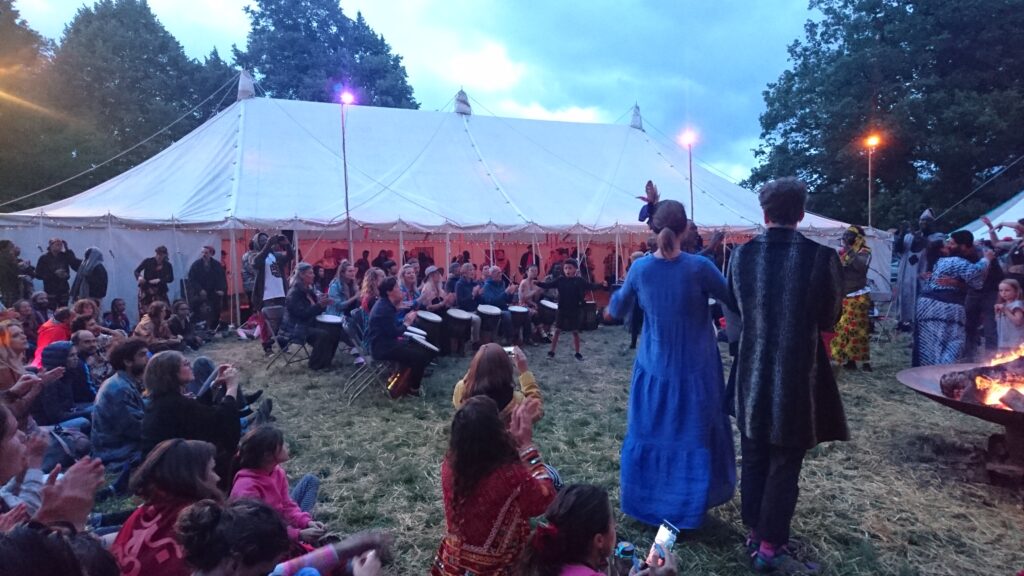Storytelling to grow the social imagination
Written by Hannah

There have been great societies that did not use the wheel, but there have been no societies that did not tell stories.
Ursula K. LeGuin – The Language of the Night: Essays on Fantasy and Science Fiction, 1979
This quest seeks to explore how the performing art of oral storytelling can be revived as a practice for social imagination.
Performance storytellers in industrialised societies like our own, are part of the entertainment, education and wellbeing landscape. Albeit a small part. We perform to audiences in theatres and community spaces, we inspire children in schools and libraries, and we work on projects which increase wellbeing and communication skills amongst specific communities. This work often supports individuals to imagine beyond the world they currently know, sometimes as a welcome means of escape, but also in a way which ties the storytelling experience to new possibilities in their everyday lives.
It’s good stuff. But it generally stops there, at the individual level.
Within indigenous communities, most of whom have been colonised, oral storytelling is/was the vessel by which a community understood its interdependent place in the world, understood the story it was living with everything else. A story, passed from tongue to ear from generation to generation was fractal in its meaning-making power. It spoke to an individual and the specific moment unfolding for them, it spoke to the community of people at family, village, and tribal levels, and it spoke to the more-than human companions and powers, trees, rocks, rivers, mountains, storms, animals, stars. Everyone was included in the meaning-making business.
Could we revive this storytelling technology to reimagine collectively, as our ancestors did? We storytellers are eager to work in this way, but are constrained by how our artform is seen as entertainment or wellness boost. We don’t get to work at the higher meaning-making fractal levels of community and ecosystem. But we’d like to. Framed as a social imagination practice, storytelling offers a bridge from the articulated need for new narratives and stories and the practical collective making of them.
Read our blog: Stories to grow the social imagination

